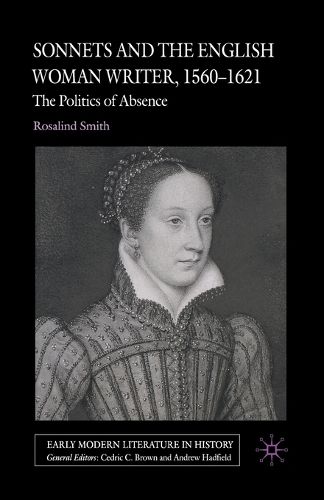Readings Newsletter
Become a Readings Member to make your shopping experience even easier.
Sign in or sign up for free!
You’re not far away from qualifying for FREE standard shipping within Australia
You’ve qualified for FREE standard shipping within Australia
The cart is loading…






This title is printed to order. This book may have been self-published. If so, we cannot guarantee the quality of the content. In the main most books will have gone through the editing process however some may not. We therefore suggest that you be aware of this before ordering this book. If in doubt check either the author or publisher’s details as we are unable to accept any returns unless they are faulty. Please contact us if you have any questions.
This study explores why women in the English Renaissance wrote so few sonnet sequences, in comparison with the traditions of Continental women writers and of English male authors. In this focus on a single genre, Rosalind Smith examines the relationship between gender and genre in the early modern period, and the critical assumptions currently underpinning questions of feminine agency within genre.
$9.00 standard shipping within Australia
FREE standard shipping within Australia for orders over $100.00
Express & International shipping calculated at checkout
This title is printed to order. This book may have been self-published. If so, we cannot guarantee the quality of the content. In the main most books will have gone through the editing process however some may not. We therefore suggest that you be aware of this before ordering this book. If in doubt check either the author or publisher’s details as we are unable to accept any returns unless they are faulty. Please contact us if you have any questions.
This study explores why women in the English Renaissance wrote so few sonnet sequences, in comparison with the traditions of Continental women writers and of English male authors. In this focus on a single genre, Rosalind Smith examines the relationship between gender and genre in the early modern period, and the critical assumptions currently underpinning questions of feminine agency within genre.